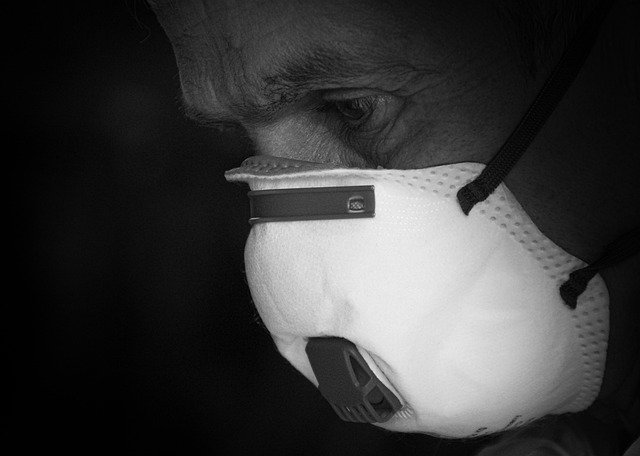The author reflects in this article on the fragility of the human being, demonstrated in this crisis of the coronavirus.
Every day, when I look at myself in the mirror, I am confronted with the reality of a heavy, white scar upon my chest. It is the result of a pacemaker which stops me fainting or passing out. Perhaps I should get used to it, accept the marvels of science. But there is a deeper issue: it is there not only as a reminder of what has happened, but as what was probably always there. My pacemaker reminds of how vulnerable I am and always will be. Science has resolved a practical problem, but not an existential one: that of accepting my vulnerability.
In this sense the Coronavirus outbreak is a reminder not of how vulnerable we have become, but rather of how vulnerable we always were. The film “Bright” highlights this with its confrontational title song Broken People by the rapper Logic. Again the idea is not that we have become a broken people: we have always been somewhat broken, fractured, lost even. The so-called crisis we are passing through is simply a reminder of how broken we have always been, and how we have tried to drown out and ignore this reality.
The French philosopher Jacques Derrida warns in his book Writing and difference that the trouble with something becoming fashionable is that we need to investigate what it ignores, what is behind this reality. The Coronavirus like my pacemaker simply points to what was always there, a hidden vulnerability. Even now what has become fashionable in this forced exclusion from society is Netflix and social media, a way in which we escape from what scares us. Which up to a point is understandable, until you realize that people are watching films about viruses and contagious outbreaks and that everything on social media is essentially about what we dare not name. In a sense we have not escaped from anything at all. We have all become medical experts and talk of nothing else. But few of us address our fears, accept that what scares us is the fear of death, and of how fragile, impotent and broken we are as people.
The problem with vulnerability is that when ignored somehow or other it has to remind us of its presence. The American group of the 1980´s REM name this presence in their popular hit Everybody hurts. We all hurt, feel pain and are vulnerable. The difficulty is facing up to it. The popular American author Brene Brown has investigated and offered us ways to work on our vulnerability. My misgivings with her approach is that she paints a rather limited picture of vulnerability. There is indeed a tendency to create our own comfort zone, which ironically, vulnerability invites us to avoid. Hiding from vulnerability is perhaps rooted in the notion of hiding from pain. This, of course, does not work. There is a popular tendency to work on weaknesses in order to turn them into strengths. But again this is part of a blind necessity to not accept my vulnerability. Not all weakness becomes strength, not everything can be overcome or be improved.
My difficulty with the Coronavirus is people thinking that by trusting in their governments, the scientists and the doctors we will get out of a crisis which is much deeper than it would appear. Derrida mentions in Writing and Difference Jean Rousset who talks of hell in literary terms as a “world in pieces”. A world that has not fallen apart, but which has been slowly ripping itself apart without us noticing it. Moreover, the singer Sting in his song Fragile also talks of how “Tomorrow’s rain will wash the stains away. But something in our minds will always stay”. What stays, I would say, is this sense of vulnerability we are always trying in many ways to escape from.
I suspect that when we have resolved this crisis we will still have to confront a bigger one: what do with this very vulnerable, existential crisis that we have survived? Some may return simply to the task of living, trying to forget what has happened. But for others this time of enforced silence and facing up to vulnerability may be a chance to ask deeper questions about how we live, the priorities in our lives, and what happens in our world to people who are continually living with violence, vulnerability and fear.
Douglas Beard OAR


